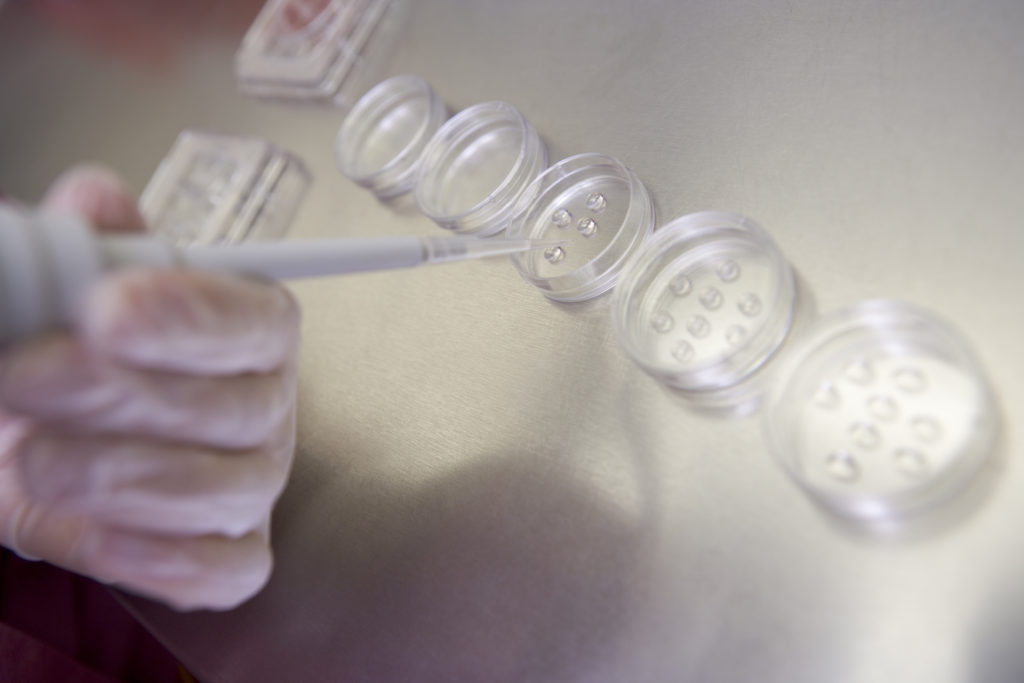What it Takes to be Sperm Donor at Fairfax Cryobank
Learn what makes Fairfax Cryobank the most thorough testing sperm bank

Did you know that Fairfax Cryobank accepts less than 1% of donor applicants? Fairfax’s extensive and thorough donor screening is intentionally designed to exclude applicants who do not meet our industry-leading standards. There are many theories and misconceptions when it comes to donating sperm. This blog will expel these theories and misconceptions to provide the facts behind the Fairfax Cryobank donor screening process.
What are the sperm donor screening requirements at Fairfax Cryobank?
Preliminary Evaluation
Sperm donor applicants must be between the ages of 18-39. Applicants then are required to submit a medical and genetic history of the donor applicant and their family members. Their applications are then reviewed by our staff and during a personal interview with the donor applicant. Applicants are then required to submit two sperm specimens for analysis to confirm they have no history of infectious, transmissible diseases.
Sperm Analysis
The sperm specimens submitted for testing are tested for volume, PH, count, motility, progression, viability, abnormality, and white blood cells. If a sperm donor applicant does not meet the minimum post-thaw standard of 20 million total motile cells/ml, they are then excluded from Fairfax’s screening process and will not be accepted as a sperm donor.
Infectious Disease Evaluation
Fairfax Cryobank implements two techniques to detect infectious diseases. The first one being Serological testing which is the industry standard. This test looks for the presence of the body’s reaction (antibodies) to an infection. The second methodology is Polymerase Chain Reaction (PCR) testing (also called NAT for Nucleic acid Testing). This testing uses molecular genetic techniques to identify the presence of DNA of the infecting agent. Click here for a current list of infectious screening tests performed on our donors.
Medical and Genetic Evaluation
Every donor applicant completes a physical, medical, and genetic examination, which a clinical geneticist reviews. With an in-house board-certified clinical geneticist, Fairfax can provide the best possible donor screening for inherited conditions. Our clinical geneticists evaluate the donor’s medical and family history and review the test results of the extensive genetic screening that sperm donor applicants complete. If a donor is at a higher risk than normal transmitting a genetic condition, they are immediately rejected.
For the current list: Genetic Disease Testing.
Post-acceptance Testing
Once a donor applicant is accepted into the donor program, each sperm specimen is tested individually, both pre-freeze and post-thaw. Any specimen that does not meet minimum standard requirements is discarded. All specimens are quarantined for six months; then, the donor is retested for HIV-1, HIV-2, HTLV-I & II, hepatitis B surface antigen, hepatitis C, syphilis (RPR), CMV, Neisseria gonorrhea, and Chlamydia trachomatis before releasing for use.
For more extensive information on Fairfax Cryobank’s donor screening process, visit our Donor Screening resource page here.
Below Fairfax Cryobank’s Director of Operation, Michelle Ottey, shares why Fairfax Cryobank is the most thorough testing sperm bank.







